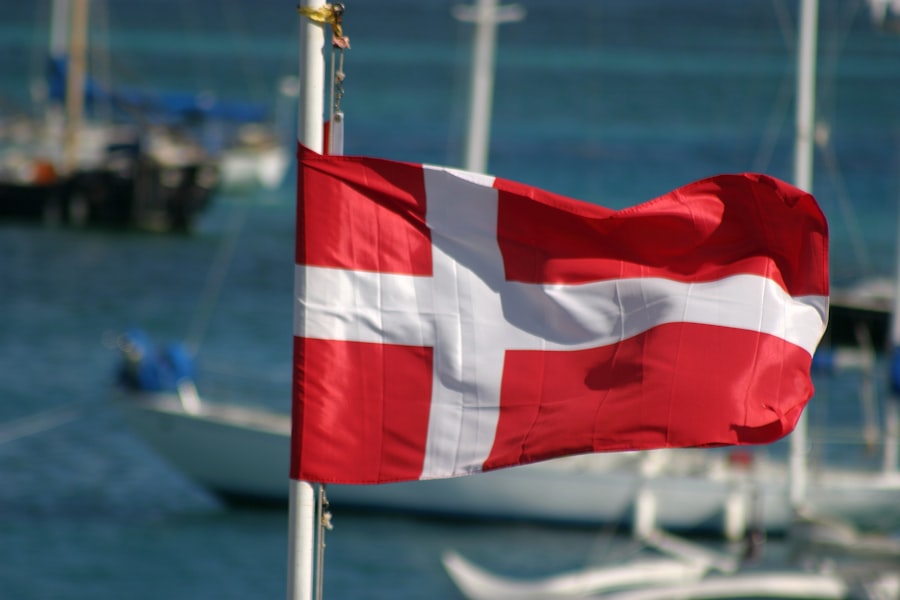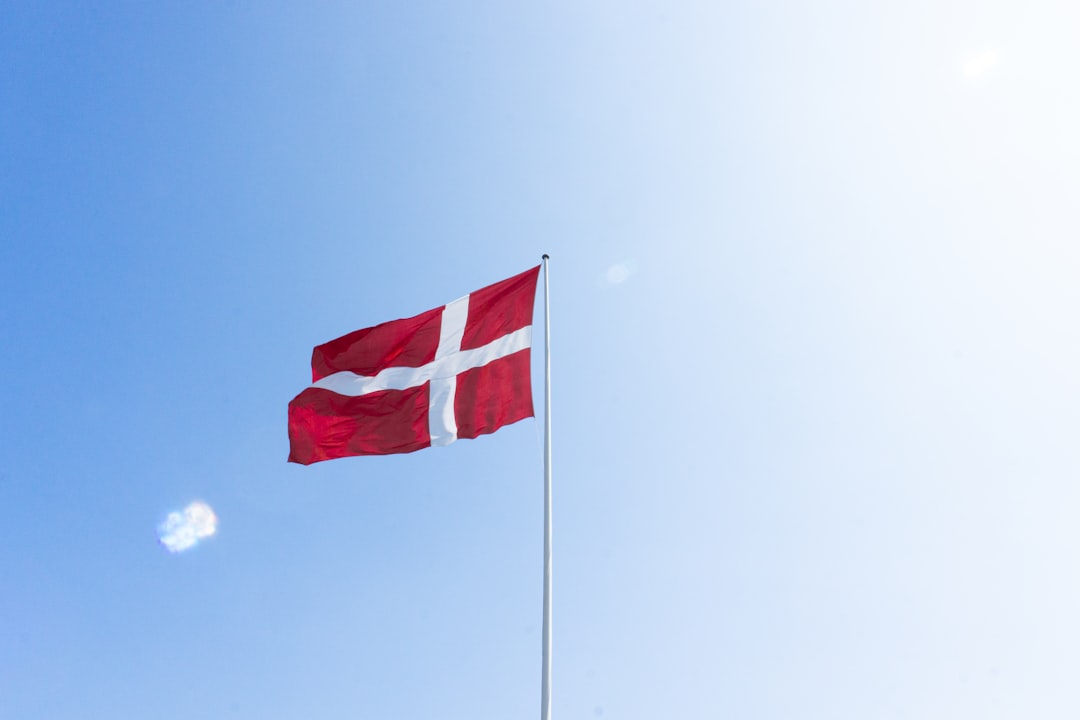Blood donation plays a crucial role in the healthcare system of Norway, serving as a lifeline for patients in need of transfusions due to surgery, trauma, or chronic illnesses. The act of donating blood is not merely a charitable gesture; it is a vital contribution to the well-being of society. In a country where healthcare is prioritised, the availability of safe and sufficient blood supplies is essential for ensuring that medical professionals can provide timely and effective treatment.
Each donation can save multiple lives, making it an invaluable resource in emergency situations and routine medical care alike. Moreover, blood donation fosters a sense of community and solidarity among Norwegians. It encourages individuals to come together for a common cause, transcending social and cultural barriers.
The act of giving blood is often seen as a civic duty, reinforcing the idea that everyone has a role to play in supporting the health of their fellow citizens. This collective responsibility not only enhances the healthcare system but also strengthens the social fabric of the nation, promoting a culture of altruism and mutual support. Book your 1-hour strategy session with Norway Relocation Group.
Summary
- Blood donation is crucial for saving lives and maintaining a steady supply of blood for medical treatments in Norway.
- The history of blood donation in Norway dates back to the early 20th century, with the Norwegian Red Cross playing a significant role in its development.
- The blood donation process in Norway involves a thorough screening of donors, followed by the collection, testing, and storage of blood in specialised blood banks.
- Eligibility criteria for blood donors in Norway include being in good health, within a certain age range, and meeting specific weight requirements.
- Blood banks in Norway play a vital role in ensuring the safe and efficient distribution of blood to hospitals and healthcare facilities across the country.
The History of Blood Donation in Norway
The history of blood donation in Norway dates back to the early 20th century when the first blood transfusions were performed. Initially, these procedures were fraught with challenges, including a lack of understanding about blood types and compatibility. However, as medical science advanced, so did the methods and practices surrounding blood donation.
By the 1930s, Norway had established its first blood bank, marking a significant milestone in the evolution of transfusion medicine. Throughout the decades, the practice of blood donation has evolved significantly. The establishment of the Norwegian Red Cross Blood Service in 1946 played a pivotal role in organising and promoting voluntary blood donation across the country.
This initiative not only improved the safety and efficiency of blood collection but also raised public awareness about the importance of donating blood. As a result, Norway has developed a robust system that ensures a steady supply of safe blood for those in need, reflecting the nation’s commitment to healthcare excellence.
The Blood Donation Process in Norway

The blood donation process in Norway is designed to be straightforward and efficient, ensuring that donors have a positive experience while contributing to a critical cause. Individuals interested in donating blood can easily find information about local donation centres through various platforms, including websites and social media. Upon arrival at a donation centre, potential donors undergo a brief screening process to assess their eligibility and ensure their safety as well as that of the recipients.
Once cleared to donate, individuals are guided through the actual donation process, which typically takes around 10 to 15 minutes. Trained medical professionals are present to assist and ensure that donors are comfortable throughout the procedure. After donating, individuals are encouraged to rest and enjoy refreshments provided by the centre to help replenish their energy levels.
This thoughtful approach not only prioritises donor well-being but also fosters a welcoming environment that encourages repeat donations.
Eligibility Criteria for Blood Donors in Norway
To maintain the safety and integrity of the blood supply, Norway has established specific eligibility criteria for potential donors. Generally, individuals aged between 18 and 60 years are encouraged to donate, although exceptions can be made for older donors who meet health requirements. Additionally, potential donors must weigh at least 50 kilograms to ensure that their health is not compromised during the donation process.
Health considerations also play a significant role in determining eligibility. Individuals with certain medical conditions or those who have recently undergone specific treatments may be temporarily or permanently deferred from donating blood. This careful screening process is essential for safeguarding both donors and recipients, ensuring that only healthy blood is collected for transfusion purposes.
By adhering to these guidelines, Norway maintains one of the safest blood donation systems in the world.
The Role of Blood Banks in Norway
Blood banks serve as the backbone of Norway’s blood donation system, playing an integral role in collecting, testing, processing, and distributing blood products across the country. These facilities are equipped with advanced technology and staffed by skilled professionals who ensure that every unit of blood meets stringent safety standards before it is released for clinical use. The meticulous processes involved in managing blood supplies are crucial for maintaining public trust in the healthcare system.
In addition to their operational responsibilities, blood banks also engage in educational initiatives aimed at raising awareness about the importance of blood donation. They collaborate with various organisations and community groups to organise events and campaigns that encourage individuals to donate regularly. By fostering partnerships with local communities, blood banks help to create a culture of giving that is essential for sustaining an adequate blood supply throughout Norway.
The Impact of Blood Donation on Healthcare in Norway

The impact of blood donation on healthcare in Norway cannot be overstated. It is an essential component of modern medical practice, enabling healthcare providers to perform life-saving procedures such as surgeries, cancer treatments, and trauma care. The availability of safe blood products directly influences patient outcomes, reducing mortality rates and improving recovery times for those undergoing medical interventions.
Furthermore, blood donation contributes significantly to public health initiatives by providing essential resources for treating chronic conditions such as anaemia and haemophilia. By ensuring that hospitals have access to sufficient blood supplies, Norway’s healthcare system can deliver comprehensive care to patients with diverse needs. This interconnectedness between blood donation and healthcare underscores the importance of maintaining robust donor programmes to support ongoing medical advancements.
Initiatives to Promote Blood Donation in Norway
In recent years, various initiatives have been launched across Norway to promote blood donation and encourage greater participation from the public. Campaigns often leverage social media platforms to reach younger audiences, highlighting personal stories from donors and recipients alike. These narratives serve to humanise the act of donating blood, illustrating its profound impact on individual lives and communities.
Additionally, partnerships with schools and universities have proven effective in fostering a culture of giving among younger generations. Educational programmes that inform students about the importance of blood donation not only raise awareness but also inspire future donors. Events such as “Blood Donation Days” are organised at educational institutions, providing students with convenient opportunities to donate while learning about the process and its significance.
Challenges and Issues in Blood Donation in Norway
Despite its successes, Norway’s blood donation system faces several challenges that require ongoing attention and innovation. One significant issue is maintaining an adequate supply of blood during periods of low donor turnout, such as holidays or summer vacations when many people are away from their usual routines. This fluctuation can lead to shortages that jeopardise patient care.
Another challenge lies in addressing misconceptions about blood donation that may deter potential donors from participating. Misinformation regarding safety concerns or eligibility criteria can create barriers that prevent individuals from stepping forward to donate. To combat these issues, continuous public education efforts are essential for dispelling myths and encouraging more people to contribute to this vital cause.
The Future of Blood Donation in Norway
Looking ahead, the future of blood donation in Norway appears promising yet requires proactive measures to adapt to changing demographics and healthcare needs. As the population ages and medical technologies advance, there will be an increasing demand for diverse blood products. This necessitates ongoing efforts to engage new donor demographics while ensuring that existing donors remain committed to regular contributions.
Technological advancements also hold great potential for enhancing the efficiency of blood collection and processing. Innovations such as mobile donation units and online appointment scheduling can streamline the donor experience while making it more accessible for individuals with busy lifestyles. By embracing these developments, Norway can continue to strengthen its blood donation system and ensure that it meets future healthcare demands effectively.
The debate surrounding voluntary versus compulsory blood donation has garnered attention in various countries, including Norway. Currently, Norway operates on a voluntary basis, relying on altruistic individuals who choose to donate without any financial incentive. This model has proven successful in maintaining a steady supply of safe blood while fostering a sense of community responsibility.
However, some argue that introducing compulsory measures could help address shortages during critical times. While this approach may seem appealing from a logistical standpoint, it raises ethical concerns regarding individual autonomy and consent. Striking a balance between encouraging voluntary donations while ensuring sufficient supplies remains a complex challenge for policymakers and healthcare leaders alike.
International Collaboration in Blood Donation in Norway
Norway actively participates in international collaborations aimed at improving global blood donation practices and sharing best practices with other nations. Through partnerships with organisations such as the World Health Organisation (WHO) and various European health agencies, Norway contributes its expertise while learning from the experiences of others. These collaborations not only enhance Norway’s own blood donation system but also support global efforts to ensure safe and sufficient blood supplies worldwide.
By engaging in knowledge exchange and joint initiatives, Norway plays a vital role in advancing public health on an international scale while reinforcing its commitment to humanitarian principles. In conclusion, blood donation is an indispensable aspect of healthcare in Norway, deeply rooted in history and community values. As challenges arise and new opportunities emerge, ongoing efforts will be essential for maintaining a robust system that meets the needs of patients across the nation.
Through education, innovation, and collaboration, Norway can continue to lead by example in promoting voluntary blood donation as a vital component of public health.
Speak Norwegian with confidence. Enroll in a class at the NLS Norwegian Language School now.

